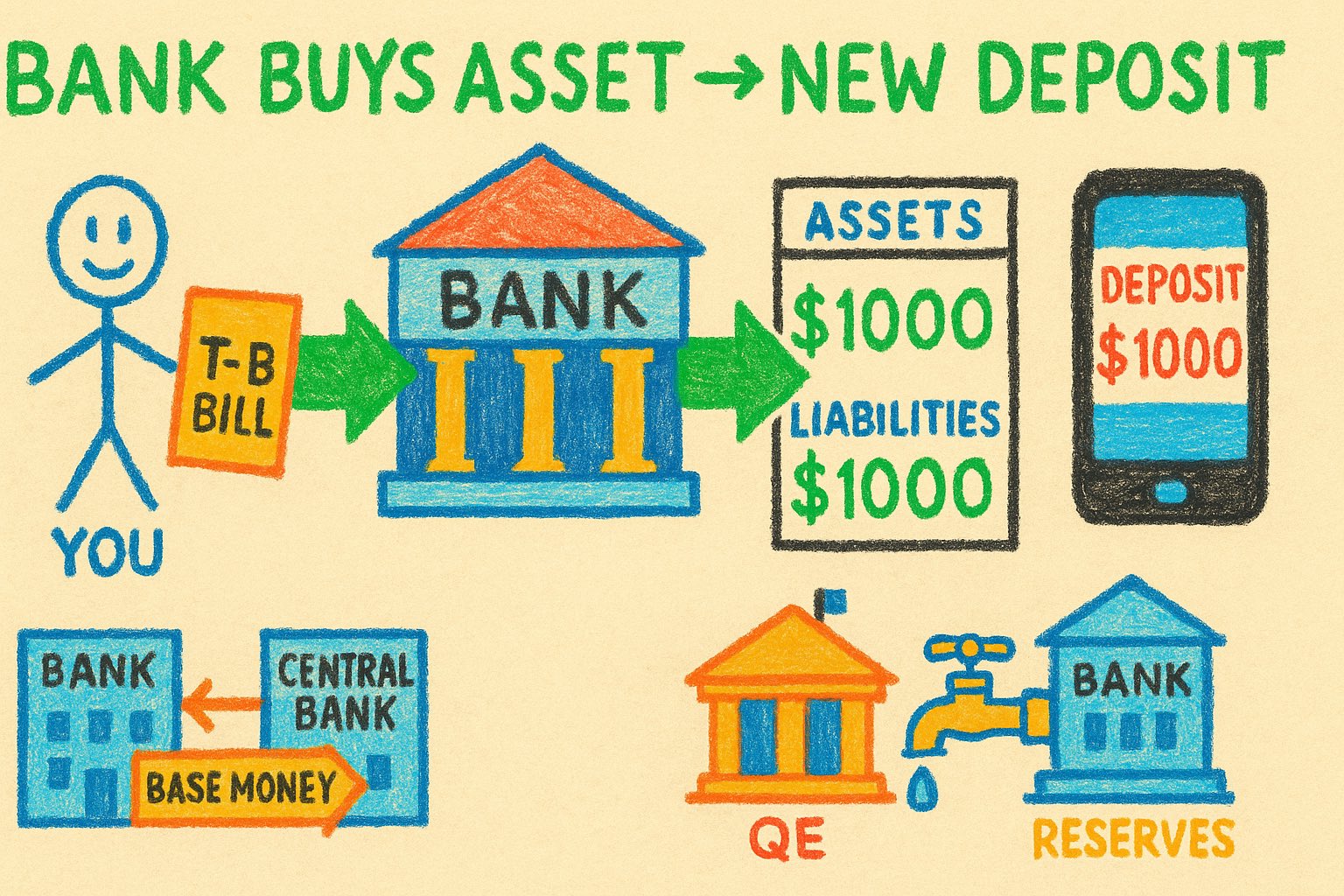
when a bank buys an asset from a non-bank it creates broad money
the bank doesn't need to have the money to pay you for the T-bill, as that money will be created and deposited into your account on the bank's sheet side it works: its assets and liabilities increase in the same amount
here, the bank's assets increase by the value of the T-bill and liabilities increase by the amount that they paid you for it. in the balance sheet the T-bill will have the same value as what the bank paid you/deposited into your account
let's say the bank bought a T-bill from you for $1000. for this, they "created $1000" and deposited them into your account. bank’s balance sheet: ➖ Assets: +$1000 (the T-bill) ➖ Liabilities: +$1000 (the deposit/payment to you) the key here is that you are a NON-bank
when banks buy assets from other banks - new deposits do not get created, as the payment happens by moving funds between the commercial bank's reserve accounts at the central bank thus, it's base money movements/reallocation, not creation
if it's the central bank buying assets from other banks, such as in QE - then the central bank also creates the deposit "out of thin air", thus effectively paying for the assets to the commercial bank with a newly created deposit into their reserve account. base money increases
also note that it's not just commercial banks that have accounts at the central bank. it varies by jurisdiction, but other entities also have accounts at the central bank for example, in the US the Treasury has an account at the Fed - the Treasury General Account (TGA)
reserve accounts at the central bank are important to understand the mechanics of how asset purchase happens. generally speaking, if an institution has an account at the central bank - reserve or other deposit account, they will use it whenever possible to settle payment
effectively this means that if both parties involved in the transaction have an account at the central bank, they will will use it to settle payments
generally speaking: ➖ transaction between central bank accounts = base money reallocated, decreased or increased ➖ transaction between non-central bank accounts = broad money reallocated, decreased or increased
this is also why commercial banks purchasing government debt securities, such as Treasury bills may be effectively monetizing that debt
